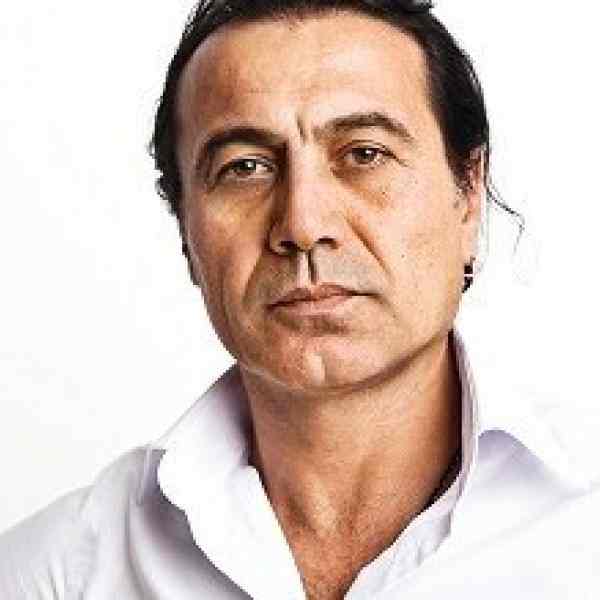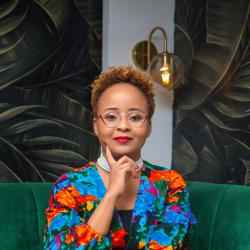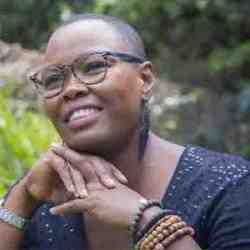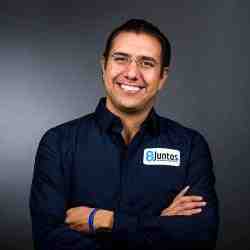Introdução
Ercan Tutal offers disabled people of all ages and abilities an opportunity to confront and overcome challenges through sports–especially scuba diving. In doing so, they show themselves, their families, neighbors, and the public what they can do, a first step in changing oppressive attitudes and securing greater freedom of opportunity.
A nova ideia
In Turkey, where disability is seen to shame families and where the disabled are hidden away in their homes, Ercan sees that greater public understanding must underpin efforts to advance rights in law and in practice. Further, he sees that people with disabilities can show the way to acceptance and opportunity through their own courage and achievement.
The week-long sports camps that form part of his strategy teach disabled participants scuba diving, swimming, horseback riding, wall climbing, table tennis and basketball, activities through which they learn to trust themselves and their abilities. But Ercan's vision does not stop with one camp, or 5 or 10, or even at the country's borders. Instead, he sees the camps, and the alternative education and experience they deliver, as an initial step in moving an entire society toward greater understanding and support of people with mental and physical disabilities. In his mind, the camps are not just for the participants; he expects that the volunteers he recruits will further advance his goals. Strung out web-like across the country, these volunteers, doctors, psychologists, and university students, will push for change in their own communities and professional circles.
Widely documented in print and film and on television, Ercan's work has attracted the attention of a broad, popular audience, in fact, much of Turkey. Now the challenge is to direct this attention toward greater opportunity for the disabled, to help them get and hold jobs, receive medical care appropriate for their conditions, trust those around them, and start their own families.
O problema
An estimated 10 million people (15 percent of the population) in Turkey are mentally or physically disabled: they have Down's syndrome or cerebral palsy; they are amputees with limited mobility; they are blind or deaf. For the most part, they live outside society–their dreams and hopes confined to the space of a living room or bedroom. Their families put them in front of the television or wheel them into a corner, seldom taking them to public places. And so the disabled person sits and waits; he does not share his dreams or seek opportunities.
While disabled children can go to school, few do so and fewer still get through school and land jobs that allow them to prove themselves as capable, contributing members of society. Those who use wheelchairs or walking aids face the challenge of simply getting around–a complication that, when coupled with the discrimination they face from teachers and employers, makes pursuing school or vocational training nearly impossible. With no role models to inspire them, their situation as the unseen minority continues and perpetuates itself.
Two national associations for the disabled exist, but these groups aim less to change public attitudes or available services than to connect the disabled. Here, the field of disabilities is just opening up and while journalists are poised to promote advances in this area, there simply has not been a story to report on. So the challenge is not one of succeeding where others have failed; it is, instead, a challenge of introducing creative solutions where none have existed, solutions that will attract broad public attention and ultimately result in greater services and opportunities for the disabled.
A estratégia
Using sports and integration, Ercan shows disabled people–and helps them show others–that they can surmount challenges. In June 2002 he opened the first of what he plans to build into an expansive network of sports camps that offer week-long programs to the disabled. Located outside Bodrum, along the country's western coast, this first camp offers free, week-long trips for people of all ages and disabilities. Participants from 6 to 45 are grouped according to age and disability. For a week, they enjoy activities that challenge them physically and mentally, learn skills like scuba diving and first-aid, talk about the importance of keeping their bodies healthy (for many, this means making changes in their lifestyle, like quitting smoking), make friends, and learn to trust. Participants pay nothing and, according to Ercan's design, many come from especially poor areas of the country. They return home with a CD-rom of memories–videos and music from the week–and a link to a world that offers greater freedom, stimulation, and acceptance than any they have known. Participants have said that the camp changed their life and inspired them to pursue new endeavors at home–starting radio programs, keeping in touch with fellow campers, seeking opportunities to get out into their communities to work, go to school, and help other disabled people.
Owing to his success in securing local resources, Ercan has gathered everything he needs to support the enterprise: two state-of-the-art dive boats (the only handicapped-accessible boats in Turkey), harbor space, free tickets for campers to visit area museums during the camp and enjoy an evening at a Bodrum disco. Through a partnership with the Tourist Authority of Turkey, participants–many of whom find out about the camp from television ads–board a bus in the nearest large town. And to offset some of the operating costs, Ercan brings in paying clients from Europe and elsewhere. Thus far, the Bodrum camp has hosted a total of 400 disabled campers and 100 volunteers each season. He is pursuing an aggressive expansion plan by selecting sites, establishing contacts (donors, universities), and beginning to raise money to establish camps throughout the country.
Ercan sees that raising public awareness of the rights of people with disabilities is critical to advancing his goal. He tackles this through two primary approaches. First, he engages volunteers in running the camps. To bring in a steady stream of screened, qualified volunteers, Ercan has established relationships with several Turkish and international volunteer organizations. Many will, he hopes, return to their communities as vocal advocates for the rights of the disabled. As many camp participants have special care needs, he takes the volunteers through simulation exercises that allow them to experience life as a blind person, or a person who has paralyzed legs. At no cost to the camp or the campers, Ercan brings in doctors, who provide pre-camp medical examinations for campers and on-site, 24-hour-support at the camp. They return to their colleagues with a greater understanding of disability and promote positive changes in the medical professions.
He also changes public attitudes by showing the disabled in the best light through attractive media images that show the beauty of the sea and the divers in it, as their wheelchairs and braces slide off and they venture below the water's surface. His camps have been publicized in medical, sports, maritime, and children's magazines, as well as on television and in documentary productions almost 40 times. One such film–"Diving Is Freedom"–tells the story of a dive trip to the Red Sea, a trip Ercan organized for 20 disabled people in 2001. Shown at an international film festival and on Turkish television, the film has reached tens of thousands of viewers who see the disabled seeing something many of them have not had the opportunity to explore: the underwater world. Ercan also links with efforts underway internationally. He identifies among the campers these to send to high-profile competitions like Special Olympics (primarily for people with mental disabilities) and ParaOlympics (for physically disabled people). In this way, he hopes to equip the disabled with role models who can accelerate the movement by their example.
While Ercan sees that each of these strategies will ultimately give rise to protective laws for people with disabilities, he envisions starting a lobbying function from an office in Ankara.
A pessoa
After growing up in Istanbul, Ercan left the country to study languages, a pursuit that took him first to Tubingen, Germany, and then to Milan. These experiences not only gave him opportunities to study culture, language, and literature, but also resulted–quite unexpectedly–in exposing him to societies where the disabled enjoy greater freedom of movement and opportunity than in Turkey. For the first time, he saw disabled people in public places–restaurants, schools, work places, dance clubs. He describes this time as pivotal to him in suggesting the possibility of greater understanding and acceptance of disability in his home country.
Seeing that scuba diving might allow the kind of positive exposure disability needed in Turkey, Ercan first took a course in handicapped diving in Switzerland He later contacted the Handicapped Scuba Association (HSA), a California-based organization that certifies instructors to dive with the disabled. Eventually becoming one of 17 "co-stars" at HSA (from among the 1,000 certified instructors in the world), he returned home, initially accepting a job as a dive instructor at an established school on Turkey's Mediterranean coast. He took the job conditionally, though, and the condition he set was that he would offer lessons to private clients, as long as the school understood that he would bring disabled people along on dive trips. In this way, he began taking a few disabled people out with non-disabled paying clients and arranged free accommodations for the disabled at area hotels.
He saw that setting up a pilot camp was the next step, and in 2002, after scanning the country, he found the perfect spot. He completely renovated the rented building in one and one-half months. The facility now has 40 beds, arranged in brightly-painted rooms, with basketball courts, a swimming pool, and seaside access. As the water temperature is warm in Bodrum, he can hold camps nine months out of the year. The Bodrum camp is a testament to how quickly Ercan can move with an idea, and how quickly he can get others to move with him. A Board Member for the Turkish Foundation of the Disabled, Foreign Advisor for the Disabled Union (a citizen group with 120,000 members in 70 branches throughout the country), and founder of a new venture, "Alternative Life Association," which provides better services for the disabled, Ercan has developed the connections and stature he needs to pursue an aggressive expansion plan for his camps.
An experienced scuba diver and sought-after instructor, Ercan approaches his work with the same vigor and determination that he applies to diving or any other of the many athletic endeavors he undertakes: develop clear strategies, select the few most likely to lead to an understood goal, and pursue those with energy, tenacity, and an optimism grounded in an understanding of your own ability and limitation. Currently, he represents Turkey in the Camel Trophy and Landrover Challenge, a multisport challenge that takes him, along with contestants from 16 countries, all over the world. Ercan deliberately uses these experiences, and the exposure and publicity they grant, to promote his work with the disabled.



